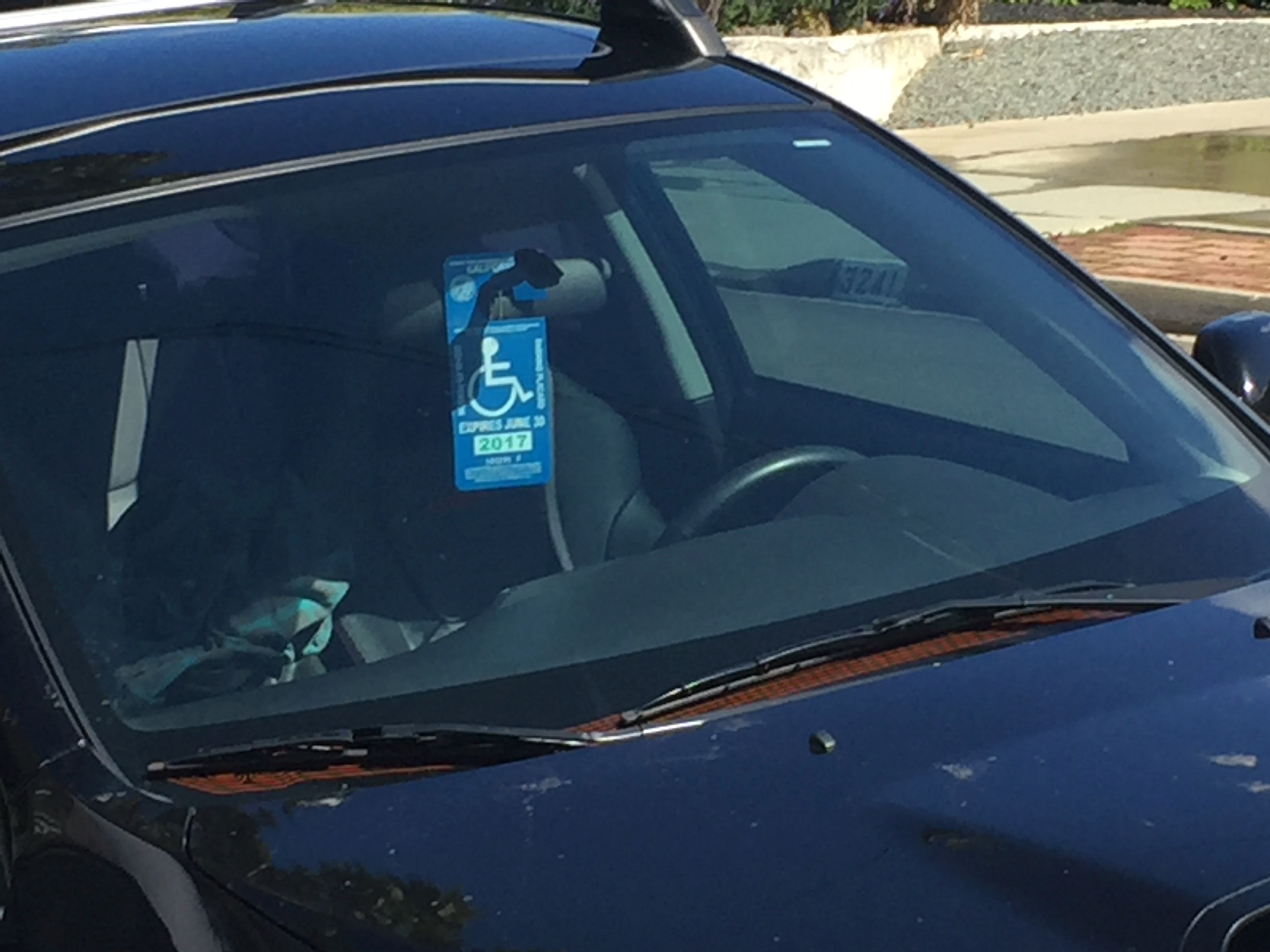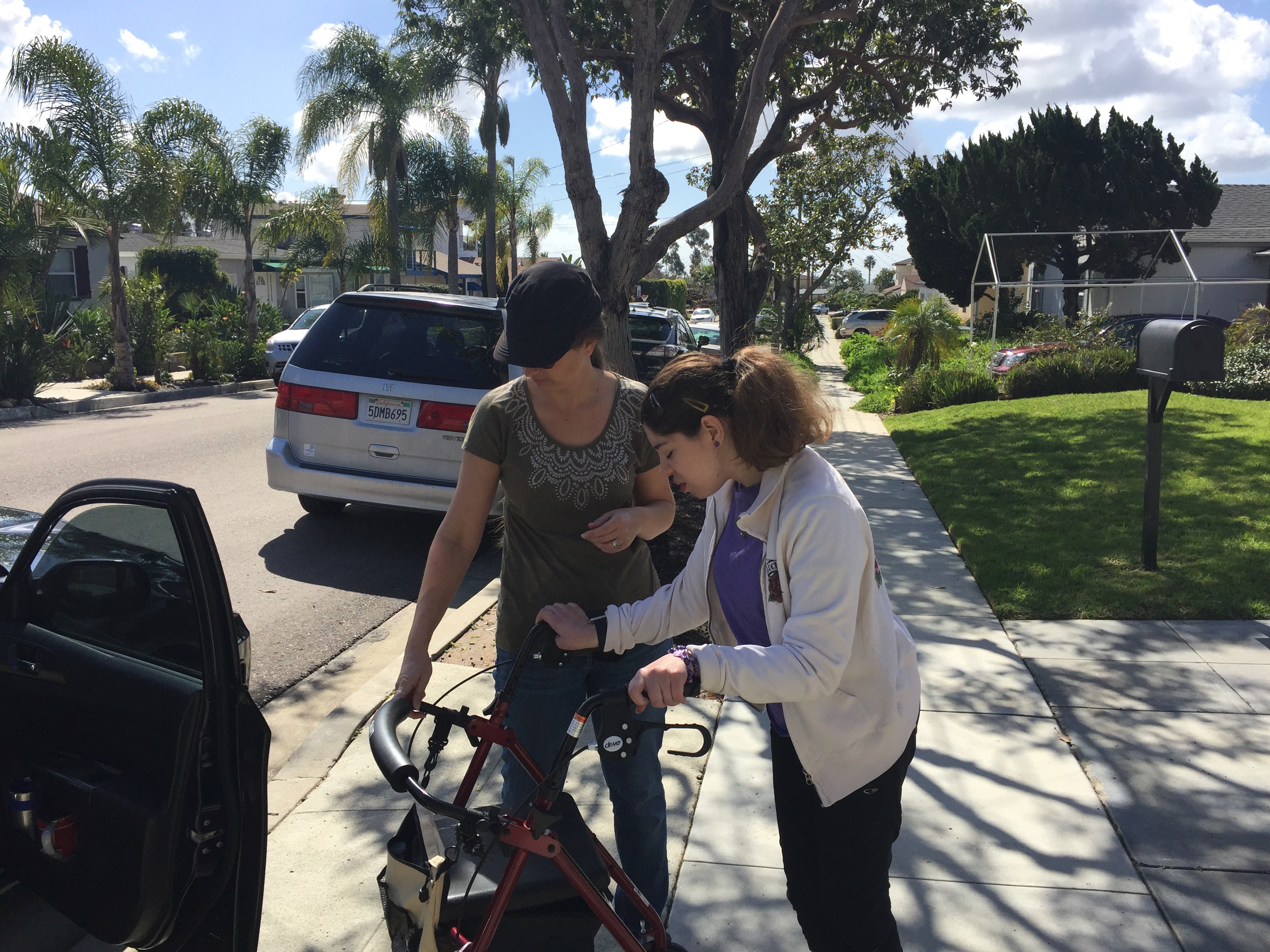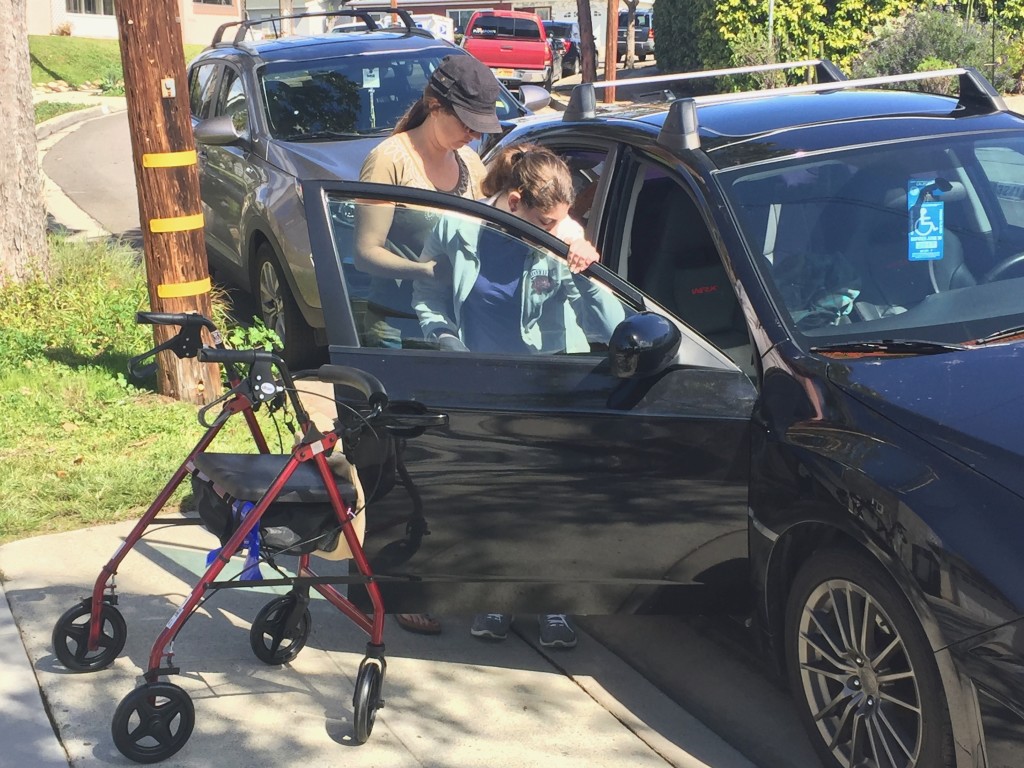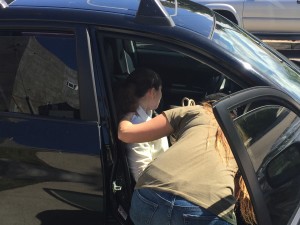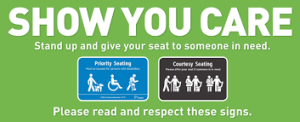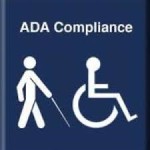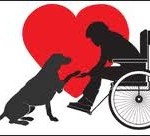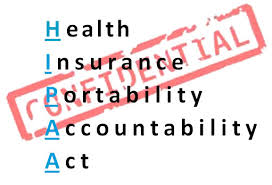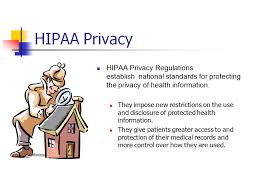Category: Uncategorized
Social Media
Cpgirl: if you guys want to follow me on Likee, they will be shorter videos, but I’ll put my videos on YouTube as well.
Likee ID: cpgirl503786 Scan on Likee search page
https://www.facebook.com/Peachgirl920?mibextid=wwXIfr&mibextid=wwXIfr
Websites to check out and social mediasFree Learning Games for Kids Online
https://www.tiktok.com/@cpgirlsarapalsy?is_from_webapp=1&sender_device=pc
https://www.tiktok.com/@cpgirlsarapalsy?is_from_webapp=1&sender_device=pc



BLOG #22: ALARMING NEWS FOR DISABLED PEOPLE
BLOG #22: ALARMING NEWS FOR DISABLED PEOPLE
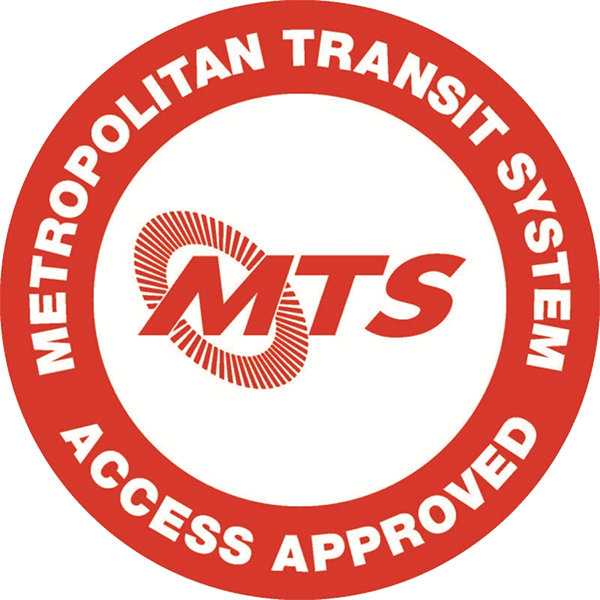
please read the Article
https://www.sdmts.com
I just thought I would share this important news. I haven’t been able to post on my website in a very long time due to imposing factors in my life. I hope to write more positive articles soon. There is much joy in the world to celebrate.
I wish there was something we could do to help those drivers who want to work and who deserve to make a living wage without depriving vulnerable people of necessary transportation. Maybe a compromise of sorts could be arranged, such as a reasonable increase in bus fare, as well as an increase in funding by the agencies that support MTS, or government grants. All of the funds from these sources could be allocated to increased pay for the hard-working drivers. And we, the disabled community, will not be stranded.
Please watch the above YouTube video, and please comment on my blog with any ideas you may have to help this situation.
https://www.transit.dot.gov/regulations-and-guidance/civil-rights-ada/part-37-transportation-services-individuals-disabilities https://www.cde.ca.gov/sp/se/lr/trnsprtgdlns.asp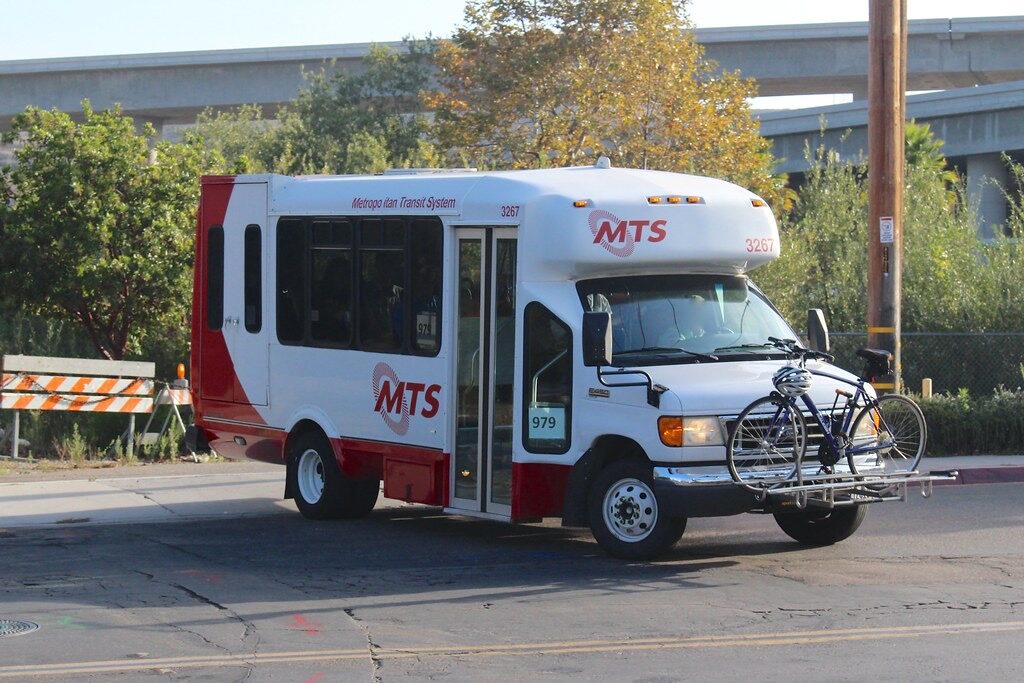
video potential work stoppage
Here’s the video guys enjoy. I have an article coming up soon. Just have to do updates.
BLOG #21: ADVOCATING FOR SUCCESS
RESOURCES AND INTERVENTIONS FOR THE DISABLED:
Sorry I have been unable to post for some time. We last posted an article from Paul Mansell, advocate for the disabled and Consumer Information Specialist for California’s Regional Center.
I am proud to present another article, which Paul presented as a high school commencement address. His speech is full of information and resources for handicapped people to achieve a successful, independent life.
One again, welcome Mr. Paul Mansell to join www.issuesofthe disabled:
A Commencement Speech

By Paul Mansell
10:00, June 28th, 2019
I find it a high honor to be invited here today to speak to you on this happy occasion. My time is limited so I will try to stay focused on the topics of self-advocacy, disability pride, employment first, self-determination, and getting involved in your community accented with personal asides.
Self-Advocacy is the personal and civil rights movement that dates back to the 1960s where individuals with developmental disabilities voice their rights, needs, hopes and dreams; and make decisions and take control of their lives. Self-advocacy is a stairway that leads from self-care, daily needs, collective action, and ending with political advocacy.
Self-advocacy is confidently speaking up for yourself, your wants, needs, hopes, and concerns. Speaking up means to speak out at meetings, to say out loud what you think or how you feel about what is happening during a meeting or during a time when you want to speak for yourself, not having others speak for you or talk instead of letting you talk. It means taking pride in yourself and your disabilities.
Self-advocacy goes beyond just talking but making decisions:
- Where to work, go to school, or go to day program
- Where to recreate
- What to buy and manage your money
- How to have fun
Self-Advocacy means the following:
- Knowing your rights and being informed
- Following through on what you say you will do
- Matching your words with your actions
- Being honest
- Listening to others and talking with them respectfully
- Celebrating all of you, your disabilities as well as your abilities
- Voting, staying informed, and getting involved in the political world.
Disability Pride is taking pride and celebrating all of you, your strengths, talents, accomplishments and achievements, your disabilities, health issues, and limitations. You are not broken and needing fixing by a health care professional. Free yourselves from conventional social norms and expectations. All of us are born with dignity, value, and purpose. We are not accidents and are part of a larger plan. The challenge is to find and claim your place in that larger plan. We all have the right to lead happy and meaningful lives. Once I discovered disability pride I felt truly liberated.
Love yourself. Don’t settle for living off of government benefits. That is too limiting. You deserve more out of life than that. Make Employment First a priority in your life. Go out and find Competitively Integrated Employment. It will give you a reason to get up in the morning, get dressed and get going, you will make relationships with interesting people, and you will be paid with money that you can spend on things you want and need. You may be able to save money and put it in a CalABLE account. Once you have achieved employment success, you may be able to earn private insurance. Remember you can contribute to work place in many different ways, but one way you can is bring diversity to the work place.
Self-determination has two meanings. In the school system it is making decisions and following through on those decisions. In the Regional Center system, it is a funding program where clients and families have greater control over their budgets. Making decisions is hard and following through on them is even harder. Starting to make decisions when you are young gives you the foundation for making decisions when you are older. Having greater control over your budget will allow you to get services that currently Regional Center will not pay for. Both definitions stress control and responsibility.
Integrating yourself into your community is perhaps the most import thing to achieving happiness in life. We all have something to contribute and give to our community through our education, work, health, volunteering and relationships. Society is enriched with our contributions. Community becomes expressions of our greater humanity. These connections are reasons for joy and celebration and give purpose and direction to life.
There once was a time, when people with disabilities were excluded from the mainstream of community and warehoused in state hospitals in the name of protecting “them” from a harsh reality. Through much compassion and a call of justice, people with disabilities have increasingly been freed and integrated into the greater community. Tremendous progress has been made in this regard and tremendous work remains in front of us for people with disabilities to be fully connected with the greater community.
I participate in my community by going to my church. I go to the 5:30PM mass on Saturdays. I am accepted as a full member. I have friends in the church. When I had to move, the men of the church helped me move my effects to my new apartment. Being integrated into the community takes time and commitment, but it can make a world of difference in your life.
I close with a call to action. Your future awaits you full of opportunity and possibility. Seize the moment and make the most out of life.
Adaptive Equipment 22
Dear Readers,
I found some interesting resources for people who have difficulty dressing. According to the information, this dressing aide should be useful, unlike some of the disappointing fake props that we find advertised. Just click on the two links below and watch the video to learn about this proposed product.
I hope this equipment will help many disabled people. Please let me know your opinions and your experiences if you try this product.
Take care and stay safe, friends!🤗😃👍
https://helpinggizmos.com
BLOG #20: CELEBRATING LIFE
I am happy and proud to introduce to you a remarkably successful man who has shared the following article to our blog. I know you will be as impressed with him as I am. Introducing Mr. Paul Mensell!
Disability Pride—Be happy
By Paul Mansell
Most of my life I viewed my disabilities through the medical model. I had a diagnosis and a prognosis, labels. I saw myself as broken, needing to be fixed by health care professionals. They couldn’t fix me, so I was really stuck. I was ashamed of my disabilities and I tried my best to conceal them. It was a huge mental load to carry, and got me nowhere. My chief ambition was to be a well behaved, compliant, patient, and to hide my disabilities as much as possible.
I talked to my ILS worker and told her the load I was carrying and how it was weighing me down. I told her how accurate my view was, how I saw doctors for my disabilities, took medicines for my disabilities, and had blood work done for them. She listened to me and then asked was my view getting me anywhere?
I said “no,” and I began to reconsider how I looked at my disabilities.
It is my experience that changes in long time and deeply held beliefs don’t happen all at once. They happen in baby steps. The first was to identify my strengths and my accomplishments. The next was to look at my future. This was all very positive and was easy to celebrate and take pride in myself.
This left me in a conundrum. Here I was trying to celebrate part of my life– and be ashamed about other parts of my life. It didn’t work for me. My disability experience is a big part of who I am and it has influenced my thoughts, feelings, and values. I can clearly say that I would not be the same person without my disabilities. I am definitely more patient, persistent, and tolerant than I would otherwise have been. In this I am most grateful.
Seeing the totality of who I am, led me to decide that I wanted to celebrate all of me—my strengths, abilities, accomplishments, my disabilities, and my limitations. It may seem counter-intuitive to celebrate having tonic clonic seizures, but it became the only logical thing to do for me. All of this change of thought and attitude, like I said, came in baby steps, but it did come because I wanted to be authentic to myself.
I was celebrating all of me and I was feeling a load was lifted from my shoulders. People noticed this and complimented me on my change in disposition. This made me feel even better. Then I took another step. I decided to take pride in my disabilities as part of taking pride in my whole self. I felt I couldn’t pick and choose what about me I had pride in. I was proud of all of me. This made me feel truly liberated. I felt so free, like an eagle soaring in the skies.
The thought came to me that I should take another baby step. I have been taking a lot of baby steps these days. The thought was to help others celebrate their entire selves, including their disabilities. I want to free others of guilt, shame, and dependency. I believe we all have a right to happiness, and we should not let health issues or social attitudes get in the way of experiencing the joy and wonder of life.
Life is brief. One moment it is here, and the next it is gone. Let’s cherish the here and now, and not let the trivial matters get in the way. Each person is unique, valuable, meaningful, and worthy of respect.
Let’s be happy!
About the Author, Paul Mansell: I am a San Diego native. I went to Sweetwater Highschool, Southwestern Community College, and earned a BA and an MA from SDSU. I am employed at the San Diego Regional Center where I support self-advocacy in the community.
BLOG #19: INNOVATIVE THERAPY PROVIDES HOPE FOR THOSE WITH HANDICAPPING CONDITIONS
 BLOG #19: MNRI THERAPY PROVIDES HOPE INNOVATIVE THERAPY FOR HANDICAPPED
BLOG #19: MNRI THERAPY PROVIDES HOPE INNOVATIVE THERAPY FOR HANDICAPPED
After much research and thought, I recently attended an intense eight-day conference/clinic—MNRI, the Masgutova Neurosensorimotor Reflex Integration program, which may well be the “missing link” in traditional therapy, as suggested by Pamela Curlee, co-founder of the Svetlana Masgutova Educational Institute. I had the pleasure to meet both Pamela and Dr. Svetlana Masgutova, Ph.D during the conference at the Bahia Hotel in San Diego, California (January 11-20, 2019). Although some of the basic stretches resemble some I have received in traditional therapy, suffice it to say, I have never experienced anything like this therapy in my life!
Dr. Masgutova developed her theories of healing, using strengths of the patient and providing trust with the delivery of repatterning and restructuring between the brain and motor reflexes, drawing from her experiences with trauma patients and observing their needs during recovery. One of these situations occurred with the Trans-Siberian Railway accident on June 4, 1989 where over 500 people were killed and another 600 wounded, 100 of whom were children. Dr. Masgutova worked with these children and learned how to heal their traumas and their bodies by listening to their needs. Later, she gave up her position as a graduate teacher and researcher at the Russian Education Academy in order to continue active research in this much-needed field. I am now one of the beneficiaries of this research and developed method of therapy.*
I passed through six sessions each day, with six different therapists who have been extensively trained in each modality, but who delivered one specialty to me during this program. All of the therapists were kind, gentle and fun to be with. Three of the therapists were handsome, male neurosurgeons! Many of the MNRI treatments begin with a “greeting” which relaxes the recipient and prepares the muscles and skin to fully receive the therapy to follow. Then, the healing begins with carefully researched movements which provide information between the muscles, tissues, and the brain—hence, the terms “Neuro-sensory motor integration.” The work focuses much on reflexes which may have been neglected or improperly encouraged since birth or trauma. The modalities include the following: Repatterning, Archetype (often referred to as the pillars of foundation for any movement patterns), Oral/Facial/Visual/Auditory, Neuro Tactile, Neurostructural, plus alternating sessions of Trauma Recovery, Stress Hormones, and Breathing. They are all amazing forms of communication between motor reflexes and the brain.
The neurosurgeon/therapist Elvin worked me harder than I have ever worked before and made my body morph into a more flexible, strong me, as did the therapist Angie in the Neurostructural sessions. The other therapists, more gentle and discreet in their treatments, were also very effective. Each therapist taught my mother and other friends and family members how to continue this valuable process with me at home so that my brain and muscles may continue to remember the patterns.
At the end of the eight days, I received a medal and other rewards for my efforts; however, regardless of the tangible rewards, the experience was very worth the large sum of money we paid. The positive testimonials by others are many.
I encourage readers to explore the websites at www.MasgutovaMethod.com and www.MasgutovaFoundation.org. I believe there are also youtube videos available with introductory information and possibly demonstrations.
Thank you for reading and supporting www.issuesofthedisabled.com!
*Pamela Curlee, "Introduction," Parent's Guide to MNRI®, Svetlana Masgutova, Ph.D and Denis Masgutova.
**Images via Google Images and courtesy of www.MasgutovaMethod.com.
BLOG #18: A FORTUNE WASTED–UNTAPPED OPPORTUNITIES FROM DISABLED POPULATIONS
“See the person, not the disability”, News and Star, www.newsandstar.co.uk
WASTED SKILL SETS, TALENTS, OVERLOOKED RESOURCES IN DISABLED POPULATIONS:
Approximately one month ago, I enthusiastically rolled into the Challenge Center for my regular work-out. I was happy to be there; however, my energy soon lessened when I listened to the sad story of a friend and longtime client of the gym. Nick had just learned that he would no longer be paid for the good work he was doing at the job where he has worked for many years. Despite many good evaluations and positive comments from supervisors, it seems that budget cuts were most easily effected by cutting earnings from handicapped workers, especially if the work occurred during hours of a day program. Wait–what? He still has to work, but he will not get paid? How is that fair? Nick was upset about this for weeks, but the saddest part for me is to realize that it happened because he is handicapped, and this injustice can happen to any of us because disabled persons have a more difficult time standing up for ourselves and fighting for our rights. Some businesses are benefiting from the hard work of disabled people, and the disabled people deserve to be paid for their efforts.
There are many people with disabilities who want to have a job–myself included. I would very willingly train for a job, but have not found any programs that will actually train me, though three day programs placed me in buildings where I sat for hours with a job coach who sat next to me, one of them falling asleep on a daily basis. My first program placed me in a job at a hospital. At first I was nervous and afraid that I could not do the job. I began with small things–validating parking and greeting people. I grew to love the job, and looked forward to learning more, but then, for no explanation, the job ended. I later found out that my day program took our group of three clients out of the job because one of us (not me) did not qualify for the job. I am still disappointed to know that I was forced to leave a job because someone else did not qualify for the job. The director could have rearranged the groups, but I remained with the group of three rather than the job. . . .At another day program, I shredded paper and stuffed envelopes, but that is as far as the opportunity went. I am reasonably intelligent and I know that I could have learned to do something more meaningful.
I wanted to obtain some information about how many disabled people have jobs and found the above illustration in Google Images, which claims that only two out of eight handicapped people have jobs.
I wanted to include more research with proper citations. I found the following graphs in Google Images, which contain information of dates and reporting agencies:
The chart above by the U.S. Bureau of Labor Statistics shows the largest percentage of employed persons with disabilities occurs in the age group of 25 to 34; maybe there is hope for me as this is my age group. However, the discrepancies in opportunities for disabled persons is obvious.
Table A-6, Economic News Released, June, 2017, shows 5,773 persons with a disability are employed as compared to 148,313 persons with no disability. Sadly, the number of disabled persons employed by this ratio goes down for the year 2018 as follows: 5,645 persons with a disabilities compared to 150,820 persons with no disability. The data depicted on the chart reveals comparisons in multiple categories for civilian populations by sex, age, and disability status. Bureau of Labor Statistics, www.bls.gov
The photo shown at the left reveals how opportunities lesson for women who are disabled.
I believe that everyone should be as productive as possible in their lives. Many people with disabilities want to work, to do something useful and meaningful. There are many things that we can do; everyone has some skills to bring to the work place–even those with learning disabilities have strengths which can be accessed to do good. This work can help others. It does not have to pay a lot, but any amount can make the life of a disabled person better, even if it pays for a cell phone bill, a movie, an app, or music from iTunes. The point is to utilize the talents of people which are currently being wasted and to provide dignity and a sense of integrity to individuals who might otherwise just be sitting around and costing money to the tax payers. Not all persons with disabilities will be able to work or do a lot, but many can and will. I would rather work than be babysat.
In closing, I urge employers to consider hiring people with disabilities to enhance the work place. If someone is currently lacking a skill that you seek, please consider offering training, with or without pay to start. No one’s talent should be wasted. Everyone deserves a chance.
BLOG #17: ISSUES OF GRATITUDE
BLOG # 17: ISSUES OF GRATITUDE
As we adjust our lives into the flow of 2018, I am thinking about some goals that I wrote down in 2014 and wondering how I did on them, or on any year’s goals for that matter. I selected the goals for 2014 because I happened to pick up a neglected journal which contains exactly two entries. The goals are as follows:
Entry #1.
- Do more research about service dogs. Performance: Done (now all I need is a service dog….) 🐶
- Listen to music every day. Performance: Excellent! 🎹🎸
- Watch good movies. Performance: Very excellent!
- Find a way to hang out with good friends. Performance: Pretty good; maybe not perfect, but better than some past years.
- Write in my diary often. Performance: oops!.
- Read more books (I wish.) Performance: Needs improvement. 📚
- Work out regularly. Performance: Good!
- Help someone. Performance: Not sure. My friend Ben says I help people with good advice and sharing, but this goal needs more evaluation.
- Work with kids. Performance: Goal not met—though I really want to work with kids in some beneficial way.
Entry #2.
- Be sensitive to others. Performance: This goal needs more evaluation. I may not be so good at this. I get disappointed in people; I get annoyed; I even tell them off. 😡But I do care about my family and friends and think about how I can try to help them unless I feel I just can’t do any more for someone at the moment.
- Say I’m sorry. Performance: Improved (according to Mom.)
- Smile as much as possible. Performance: Valiant efforts made. 😁
- Be grateful…. 👍
Gratitude List.
❤️I am grateful for family and friends who are good listeners. Sometimes I call them with problems or asking for advice or just a good ear. Thank you to all those who take the time out of their busy days to return my calls or check on me and other people with disabilities who may not be able to solve some of their issues by themselves. Life can be scary and lonely for everyone, but can be more so for those who cannot speak or act for themselves.
❤️I am grateful for my parents who do so much for me. Many of my friends have no parents to advocate for them, and I worry for their safety and quality of life. I am grateful to all people in my life and those who volunteer to help those in need, such as the elderly, those who are sick, and my standby cause, those with disabilities. DO NOT ASSUME that someone is fine; they might not be fine. DO NOT assume that someone is taking care of them. Some parents do not know what to do, even if they love their kids; many professional agencies fall extremely short of doing an acceptable job due to issues of time and funding. PLEASE take the time to see if someone’s needs are being met if they have physical, neurological, or mental issues.
❤️As my mom and I passed by the police ticket cart this afternoon, I am thankful that we did not get a ticket today for parking in front of our own driveway as I got into the car. We still need to find a way to have that parking law revised so that transporters of handicapped people may use the cut curb of their driveway for a short time in order to get a disabled person safely into a vehicle. If taxis and buses have a license to do this, why not handicapped people and their drivers. Readers, we would be even more grateful if you could help us with this issue (please see Blog #15: The Spirit of the Law.)
❤️I am grateful for genius types of people who invent things to make the lives of others safer and easier. Thank you to the inventors of grab bars, Dyna boxes (hopefully someday the voices will sound more natural—like Alexa or Siri.) Thanks to inventors of apps that help people, such as Safe Trek, a safety app for all people, which may expedite the obtaining of emergency assistance if someone feels that they are being followed or that they are in danger (please access the attached video link.)
❤️Finally, I am grateful for all people who recognize and treat disabled individuals with respect, even if they are different, even if they do not appear as skilled or smart or verbal as many others. You may not even know what greatness lies within that person or how precious they are. All people have feelings. All people need friends who will call them and maybe hang out or go to a movie or a concert. All lives matter—more than you may know. PLEASE DO NOT leave them waiting for your call.
Thank you for reading, commenting and sharing www.issuesofthedisabled.com ❤️❤️❤️<3
BLOG #16: Helping Humanity: It’s a Team Effort
Dear Friends,
Recently, a reader of this blog, Issues of the Disabled, expressed frustration concerning his lack of power to change the problems that disabled people face, big or small. Granted, it is a huge effort for most handicapped people to get up, get dressed, get fed, and get out the door each day to do anything productive.
Please know that you are helping us all simply by reading and sharing this blog. Please mention the blog or specific articles (so far I have 1-15). Please write comments if you know of anyone who can help with a particular issue, such as the name of a senator or congressman, mayor or councilman. In addition, if you feel extra generous, please write that person or persons yourself. There is power in numbers. Sometimes, I feel so overwhelmed. It feels good to know that people are reading and care. One of my cousins once wrote Councilman Chris Cate regarding potholes at the North Clairemont Library. Shortly thereafter, the potholes were removed. This was a tremendous help to book lovers and people like me who might go to the library for tutoring.
Do not underestimate your power as a human being. Together we multiple our talents and our resources–and our power. PLEASE READ, COMMENT, AND SHARE.
CP Girl
BLOG #15: THE SPIRIT OF THE LAW
People laugh at the idea of someone taking their parking ticket to the Supreme Court, but sadly, sometimes someone might actually need to do that if the parking regulation is so poorly written as to cause harm to innocent and helpless people .
Here is the sad story that so far, no one will help us with: Recently, my care provider, Libby, arrived to pick me up for our Tuesday work-out at the YMCA. As usual, she needed to park across our driveway and then bring me out to her car. We need the flat part of the driveway so that I can roll up in my walker and then transfer into her car from the passenger side. This is the safest way for me to get into the car. As she walked me out that day, we almost did not see the paper which was trapped under the windshield wiper, but after Libby dislodged the paper, we were stunned and upset to find out that it was a parking ticket that we received for parking across our own driveway. Again, I am restating that this is the safest way to get me into a vehicle without having me pitch forward on the steep driveway or stumble over brush and uneven surfaces leading to the raised curb.
My mom looked up the vehicle code, which basically states that it is illegal to park across a driveway, thereby blocking access to legally parked vehicles. But in this case, the driveway is our own, and the vehicle blocked was our own vehicle, and my mom definitely did not mind having Libby’s car there for a few minutes in order to put me into the car without suffering pain and injury. Libby was not actually parking the car. She was not going to leave it there while she went inside and had lunch or something. She was making a simple transfer of a handicapped person to preserve my health and for my welfare. Not one single person was affected by this temporary transfer, but I was helped. It was an entirely beneficial use of the driveway. Yet, suddenly, we had to deal with an expensive, undeserved ticket.
My mom, still believing in basic justice and the humanity of man, wrote a letter ✉️ of explanation to the administrative offices, feeling reasonably assured that an accommodation would be given, once the city officials realized that certainly forbidding us to use our own driveway for a safe transfer was not the original intent of this law. It was not like we were parking across our neighbor’s driveway because there was not enough room for us to park at a party or some such use. 
However, to our dismay, the citation was upheld because we did break the letter of the law as it was written, and apparently, no one could use their brain or their sense of reason or compassion to assist us with this matter.
⌛️Undaunted, my mom spent many hours on the phone, explaining the story over and over. ☎️ She called everyone she could think of whose job description might have something to do with helping handicapped people and issues regarding accessibility. She called disabled advocates offices, ADA offices, disabled rights offices, legal aide, the city, the DMV, DMV legal department, an influential attorney, thinking he might have a heart (he didn’t bother to answer the call or email.) Many of these agencies advised my mom to call the other agency whom she had already called who had told her to call that agency, and so on and so forth. No one would listen or care. It seems that this situation is exactly one which falls under the title of “disabled advocates” or “disabled rights”, but amazingly, it also seems that none of these people want to do their jobs. When the ADA law was originally written, someone had to initiate it. Someone wrote provisions for blue parking spaces and handicap placards (which we had properly displayed). Someone decided that if there were no blue spaces available, a handicapped person could park in a green space. Someone made these laws, and I am sure they have been added to and amended from time to time. Yet not one person would give my mom the time of day regarding this issue. And yet any reasonable person could readily see that this law was not written to prevent me from safely getting into a car.
Libby’s Car and My Placard
To add insult to injury, after my mom paid the ticket and requested a hearing, a few days later, Libby received a statement demanding an additional $46+, advising that the payment was late. My mom looked at the original letter which stated that we had 21 days in which to make payment; she paid it two days after receiving the letter. Amazed, she saw that the letter was dated December 20th, yet it was received on January 11th. The letter must have remained in the city offices for most of the days which we were supposed to have to pay the fine.
I am sure that the people who wrote this law intended to prevent individuals from parking across and blocking the driveways of others. I am certain that the writers of this law did not mean that someone could not temporarily use their own driveway, with their own consent, to transfer their own handicapped daughter into a vehicle for the purpose of keeping her safe.
My mom believes that this interpretation of the law subverts the true intention of the law in that the letter of this law actually blocks my care providers from keeping me safe and helping to preserve the quality of my life. Otherwise, I would be stuck indoors most of the time.
Some time in history, laws regarding accessibility were created. People had to take the initiative to provide accommodations for disabled people. At some time, someone cared. After the laws were made, agencies were created to monitor the follow-through of these laws and accommodations. When CVC 22500 (e) was written and invoked, this type of situation was obviously not yet considered, and an amendment or accommodation is in order. The California law does in fact make a provision as follows: “. . .except that a bus engaged as a common carrier, school bus, or a taxicab may stop to load or unload passengers. . .” https://leginfo.legislature.ca.gov/faces/codes If such an accommodation can be made for taxi cabs, why not add a provision for loading and unloading handicapped people for their safety? It was accidentally omitted! Both the municipal and state laws require accommodations.
Yet, it seems that no one will put down their coffee cup long enough to initiate a process and ensure the spirit of this law. The State of California and the City of San Diego insist on enforcing the letter of the law rather than the spirit of the law, and that’s not fair!
One last thought. My mom wrote our local councilman about this situation, and was pleased that an assistant took the time to write back, but it ended with no solution and no follow-up. A couple of days ago, my mom went on-line to look up the exact wording of the law again, and to her further surprise, it appeared that a sentence fragment had been added by the City of San Diego under the bulleted list of areas of prohibited parking: “. . .in front of a public or private driveway (even your own driveway.) Did the city immediately add those last words to avoid confusion after my mom contacted those offices with this issue? It’s hard to tell, but it seems like covering themselves and avoiding extra work is what they do. https://www.sandiego.gov/parking/enforcement
Yesterday, Libby came to pick me up for work-out again—this time to go to The Challenge Center. She is now so afraid of getting a ticket that she backed into the driveway to put me into the car that way. We were both uncomfortable and shaking as she attempted to put me into the car from that steep angle. It was not safe. Also, the entire street was full of cars in front of our house, as well as our neighbors. Curb parking is not entirely safe anyway, even if it was available. Isn’t that great?
The Safest Way, Using the End of the Driveway
Me, Safely in the Car Now
Dear Readers, please add your comments with your opinions and advice regarding this issue. If anyone knows who the proper channel would be to solve this problem, please let us know. As we look at the long lists of assembly members and senate committee members, we are exhausted and do not know where to begin as this is just one thing that affects our lives in the handicapped world. As my mom says, “Everything is the Great Wall of China” or another Mt. Everest to scale, each and every day before we begin to do the things we need to do each day. If anyone knows a way to help with this issue, please advise.
THANK YOU SO MUCH!!!
BLOG #14: POSITIVE OUTCOMES FOR THE FUTURE REGARDING ACCESSIBILITY ON METROPOLITAN TRANSIT SYSTEMS (MT)
 PROBLEMS WITH ACCESSIBILITY: My good friend Ken was very tired after a full day in the community with his adult day program. As he waited for the arrival of the MTS bus, he couldn’t wait to get home to rest. However, when the bus pulled up, the driver took one look at Ken in his power wheelchair and proclaimed that there was no room on the bus. Ken would have to wait for the next bus. As the bus pulled away, Ken and his staff members were disappointed and also annoyed since they saw empty seats on the bus. Ken prepared to wait again though he was exhausted.
PROBLEMS WITH ACCESSIBILITY: My good friend Ken was very tired after a full day in the community with his adult day program. As he waited for the arrival of the MTS bus, he couldn’t wait to get home to rest. However, when the bus pulled up, the driver took one look at Ken in his power wheelchair and proclaimed that there was no room on the bus. Ken would have to wait for the next bus. As the bus pulled away, Ken and his staff members were disappointed and also annoyed since they saw empty seats on the bus. Ken prepared to wait again though he was exhausted.
Situations like this have happened to me and other disabled acquaintances. Years ago, one of the staff from my former program told me that a passenger could not be required to give up their seat for a disabled person, even if they were seated in a wheelchair spot, and even if there were other vacant seats. I always thought this was unfair. I thought that a law should be made requiring passengers to first use up all regular seats available on buses before taking the flip-up seats which convert to wheelchair accessible spots. Why should a disabled person ever be denied access to a bus with empty seats?
STRIKE YIELDS POSITIVE OUTCOME FOR DISABLED PEOPLE:
Readers may remember the MTS strike during the week of May 25, 2016. Many disabled people could not go to their programs or jobs for days because of the strike. However, the union did come to an agreement with the drivers and the bus company. Also, at least one other positive benefit was reinforced regarding wheelchair priority seating enforcement. The relatively recent law and company policy reads as follows:
A new state law and MTS policy require passengers to relinquish their seat to seniors and people with disabilities if the seat is located in a wheelchair or priority seating area of the bus or Trolley. These seats and areas are designated by blue signs.
This is not a new law or policy. The regulations simply were not enforced uniformly or else Ken would have gotten his ride that Wednesday. His ride should not depend upon the attitude or laziness of the driver of the moment. Now, violators are subject to fines if the law is not strictly observed.
ACCESSIBILITY FOR DISABLED PEOPLE IMPROVED ON MTS: Thank you to those who followed through by informing lawmakers of this need for change! Thank you to our lawmakers who saw the need to reinforce this law and policy!
For further information regarding accessibility laws or to report a problem, please see the following link: www.sdmts.com/rider-info/accessibility, or call (619) 557-4555.
BLOG #13: Service Dog or Companion Animal
You have probably heard about service dogs, or maybe you have seen them on airplanes or in restaurants, and you might say to yourself, “Why on earth is that man or woman allowed to bring that dog in here.” Perhaps you don’t want to eat dinner in a restaurant where a large dog is tucked under the seat of its owner or walking past you on the way to a table. Maybe you think a service dog will bark on the plane or even bite someone.
I can almost guarantee you that, if it is a real service dog, it will not bother you at all, as long as you are not bothering its handler. A service dog will not bark, bite, or jump on you. Most of the time, you probably will not even realize that the animal is there because service dogs are highly trained, specialized animals. The same is not always true of a companion dog.
A service dog is “. . . individually trained to do work or perform tasks for an individual with a disability. The task(s) performed by the dog must be directly related to the person’s disability (Americans with Disabilities Act (ADA, 2010).” Please note the heavy emphasis on the word “trained.”
Dogs, such as seizure assistance alert dogs, guide dogs for the blind, or service dogs for people with physical disabilities, such as cerebral palsy, can dramatically affect the disabled person’s life “ . . .but only if the dog is trained well enough to assist. A dog who is not trained will only make a situation worse,” states Katie Gonzalez, CDT, director of Little Angels Service Dogs and author of several books about training assistance dogs.”
I have wanted a service dog for at least ten years. I have purposely waited to apply for a dog because of the great responsibility that comes with having such a dog—responsibility that extends to family, friends, society, and the dog. I have written a long list of pros and cons about having a service dog; I have edited the list many times, and still, I have not made up my mind about getting one; it is a serious matter. Yet, I know people who decide on a whim to obtain a dog for emotional companionship or for some other reason. Then they go on-line, buy a vest for it, and proceed to call it a service or companion dog, thinking that they have the right to take the dog with them anywhere, no matter how this most likely untrained animal may affect other people. Currently, almost anyone can have such a dog. Laws are changing to accommodate “invisible” handicaps.
I am not against a truly handicapped person from having a service or “companion” dog, but there should be strict regulations accompanying such privileges. For instance, real service dogs undergo extensive training at great cost and time. They are first trained by experts to behave impeccably; they do not bark, except for specific reasons, such as the need to alert others to assist their handler in the event of a seizure. They do not run around or chase other dogs. They know their job is to work for and to assist their handler. These dogs will not even go to the bathroom without permission. They can be taught to go in specific places. After the initial training by an agency, the service dog then trains further with its intended owner or handler. By the time training is complete, the dog will know many signals and commands, which will enable him or her to assist with the specific needs of the disabled person. The ADA provides handicapped people with the privilege of taking their highly trained dog with them to various places in exchange for the understanding that the dog will not disrupt the public since other people also have rights to enjoy their day safely and without harassment.
I have friends and family who have companion dogs. I believe that they derive great comfort from their dogs. However, I have witnessed and heard accounts from trustworthy sources who have seen these cute little doggies walking on tables where food is served, running around, barking excessively, chasing other dogs, and even peeing on a restaurant floor. I’m sorry, folks; this is not right. Real service dogs are trained not to do these things, which can be unpleasant or disruptive to other people. An untrained dog can even be potentially dangerous in some places, such as an airplane.
If people with invisible handicaps want a “companion” dog, they should be required to have training comparable to actual service dogs. Otherwise, the dog is simply a pet wearing a vest. This is unfair to the public, and it is particularly unfair to people with disabilities who apply for, wait for, pay for, and train real service dogs.
Don’t we all get comfort from our pets, and wouldn’t we all like to take our pets with us wherever we go? People who want this privilege must first comply with acceptable standards.
I need a service dog to assist me with many things such as opening doors, turning on lights, bringing things to me that I cannot possibly reach, picking up things that I continually drop, finding my way home, alerting my family in the event of a seizure, helping me to stand up if I have fallen, reminding me to take medications, pulling my wheel chair, and much, much more; the list is extensive. I have been disabled since birth and still am not independent despite years of physical and occupational therapy. A service dog could save my life, and yes, it would provide me with companionship in this sometimes lonely life.
If I do decide to apply for a service dog, I am very aware of my responsibility to the people of the world, and I solemnly promise that I will not deprive them of their right to a safe and serene environment because of my wants and needs.
I encourage others to think about this situation and the way that the ADA laws have been misused in order to accommodate the wants of certain people who do not take on the responsibilities that go with the privilege. Think about it and encourage everyone you know to practice socially appropriate behavioral etiquette for companion animals.
BLOG # 12: WHAT ABOUT THAT HIPAA?
HIPAA: WHAT IS IT?
According to MedTerms medical dictionary, HIPAA is an acronym for Health Insurance Portability and Accountability. Ironically, I always thought that the “P” stood for the word “protection,” but I was wrong. Actually, it is a law designed to provide privacy standards in order to “protect” patients’ medical records and other health information. This law, developed by the Department of Health and Human Services, pertains to health plans, doctors, hospitals, and other health providers. The law became effective on April 14, 2003, and supposedly provides uniform regulations for privacy “protections” to consumers—like me. I have cerebral palsy. My private information exists in many doctors’ offices and medical facilities throughout San Diego, as well as in schools, day programs, social services organizations, and other places.
DOES IT HELP US OR, DOES IT HURT US?
So, how is this law working for most of us? Well, the year 2003, or shortly thereafter, might actually have been the time that someone took my social security number from a confidential file (I believe it may have been stolen from my school when social security numbers were required to be included on the front page of IEPs (Individual Education Plans.) I also worked in the office at my high school for a while where I was paid a small amount under the Workability Program, which program I believe no longer exists. After I turned 18, and my parents took me to the Social Security office, we learned that some female identity thief was working at McDonalds in Arizona, using my Social Security number. I still cannot access my own credit report; the records have been flagged (locked) by unknown persons. My mom and step-dad have expended countless hours and frustration, trying to solve this problem, but no one will talk to us. All resources on the internet seem to lead to no where. The police laughed at my mom when she called to see if the police report had been followed up upon. The officer advised my mom that there are hundreds of these reports each day. If we do succeed in unfreezing my credit report, I continue to be a sitting duck for dishonest people to steal my information over and over again. Every dentist office, chiropractor, day program, virtually most facilities, ask for our social security numbers and even driver’s license numbers on office paperwork. What is to protect any clerk from recording our information? My mom and I seriously feel that the HIPAA law hurts more people than it protects. Here is how:
HOW HIPAA HURTS DISABLED CONSUMERS:
Example #1. On several occasions, we have requested that my medical records be sent from one medical facility to another. I have a huge file beginning from my birth at Children’s Hospital. My mom wrote multiple times, using the proper request for information form required by HIPAA. She followed up with phone calls. The records NEVER arrived.
The same thing happened when my mom requested records from a former eye surgeon. She wrote multiple times. The new doctor never received the records. It happened at another medical facility recently. Offices use the HIPPA law as an excuse not to have to do the work. The first time she wrote, my mom received a letter advising that she did not use the proper HIPAA form. This is not true because she did use the correct form, and the HIPAA citation and date were at the bottom of the form. She downloaded the form from the facilities’ website. She filed the request again. She later received a letter from medical records, saying that the request was not specific enough. When we wrote again to clarify the request, there was no follow-up by the office. It was just a paper trail to make it look like we did not make a proper request. Again, my file is large and no one wanted to do that work. So now my new doctors will not be fully informed of my condition in order to do their jobs well for my health. It makes me feel unimportant because I am handicapped. It makes me feel sealed off from access to vital assistance in life.
The HIPAA law has hurt me by preventing me from clearing my own credit report after it failed to protect me from identify theft. And it gives medical offices and other facilities an escape route from honest work that is needed to protect patients and consumers.
Example #2. I have a friend named Mark who I have written about in a former blog. Mark is not his real name. This friend has many problems. He has mild disabilities, but he is very high functioning. In the past, an uncaring and unethical care provider stole his money by using her close position to him in order to gain access to his passwords and checking account information. HIPAA did not protect him, and his crisis team left him alone to deal with the matter in court where he was held to the standard of a non-handicapped person. So he lost the case since he failed to make the burden of proof.
Later, Mark also suffered from abuse in more than one foster home and group home. Yet, when he appealed for help from the agency in charge, sometimes he was not believed because of his handicapping condition, or the caseworker involved failed to record the facts accurately regarding the situation. My mom and I both overheard an incident of abuse at one of the group homes when we happened to be talking to him while using the speakerphone. We both heard the group home owner pounding on Mark’s door and cursing at him. Yet, because of the HIPAA law, no one would talk to us about him or the proof that we heard regarding his situation. Since he has no biological parent to advocate for him, my mom has tried to help him. He has asked us for help many times, yet the agency in charge continues to refuse to talk to us.
He went from that abusive group home to multiple hospitals, then, to nursing facilities when the stress became so great that he began having seizures or panic attacks as my mom was told. My mom could have helped him. She wanted to speak with the doctors to make sure that he was given the right medications since she knows a lot about seizures meds, having gone through it all with me, and the different doctors did not know him or his former medical issues. Still, she was prevented from being involved in his care due to the HIPAA law—even when Mark requested that she be involved!
A job coach from a day program recently hit Mark. My mom wanted to make sure the facts were accurately reported and that a consequence would result for the incompetent day program, where I had also experienced negligent care, but again, no one would speak with her. We were prevented from reporting or reading any reports or information regarding the incident. We know his behaviors may not always be perfect. He is handicapped, but he is a sweetheart, kind and intelligent. He does become frustrated sometimes because he has no control of his life.
The HIPAA law seems to prevent concerned people from helping those in need, even when the person involved needs and asks for help. How is this law providing protection for this consumer?
Example #3. The same scenario occurred with my good friend, Sarah, who I also wrote about in the same former blog. Again, Sarah is not her real name. My mom has been trying to help Sarah for years, but the same agency prevents us from helping, even when Sarah begs for our help. Recently, she was left in a nursing home for almost five years. Alzheimer’s patients primarily live there. In all the times we visited her there, we never saw one young person staying at this nursing home. Sarah’s health had been ruined in a previous neglectful group home, and she was placed in this nursing facility to improve her health, but her health continued to get worse as no reasonable standard of care was given to her. She had blood clots, bed sores, breathing issues, and extreme weight gain. She was required to wait for inordinate amounts of time when she called for help to use the restroom, frequently being forced to go to the bathroom in her clothing. Two much-needed surgeries were cancelled and never resumed because the head nurse and doctor failed to read her previous medical record. Good HIPAA protection! Over and over again, Sarah begged for our help. Neither the nursing home, nor the “agency” would take my mom’s calls, with few exceptions. One nurse did speak with my mom. Unfortunately, the turn over in staff at this place was so frequent that social workers and nurses left before my mom could follow up with them, and the new staff would refuse to speak with her, invoking the HIPAA law.
Finally, Sarah succeeded in moving out of this nursing facility. Then we lost her. She called us one night with the news that she finally had moved to a new group home. We were late for an engagement and could not talk long at that moment, but we promised to call her back the next day. Somehow I accidentally deleted the phone number from recent calls in my cell phone. Now, we had no way of contacting her; this was a new cell phone number. Sarah changed numbers often when she didn’t have enough money to pay her bill. When this happened, we would call to speak with her at the nursing home, but she was no longer there. We called the nursing facility at least five times to find out where she went. They acted like they did not know who we were and cited the HIPAA law to deny us information. My mom had attended meetings on Sarah’s behalf and at her request. My mom knew the names of the social workers, the head nurse, Sarah’s day program supervisor and service worker. Yet, no one at this facility would acknowledge that my mother was an approved person to receive information regarding Sarah.
Mom called the day program, but the owner was a rude and haughty man who said he couldn’t help us, and we were not demanding that he tell us where Sarah is, but simply that he or a staff worker call Sarah and let her know that we had lost her number and could not call her. He would not help. I know the HIPAA law does not say that he could not call her and relate this information to her. He just used the law as an excuse to get off the phone–such a busy, important man, you know.
We also called Regional Center, which agency returned no phone calls either. Sarah’s social worker at RC knows exactly who we are because she sat at a conference table with my mom at Sarah’s meetings. Yet, this social worker did not have the courtesy to return my mother’s calls in order to help her own client, Sarah! She does not care how her client feels being isolated from her best friend, and she certainly did not care how I felt at not being able to find my good friend.
The HIPAA law gives agencies license to ignore important communications that could help their clients.
We were heartbroken and desperate to find Sarah. We thought perhaps she had even died because her health had declined so much, and she had been hospitalized a few times. How uncaring all of these agencies are!
Sarah called to wish us a happy Christmas. We rejoiced! We wrote her number everywhere. She seems happier now in her new home. But it breaks my heart to think of how she has suffered and how lonely she must have been with wondering why we didn’t call her. Agencies go too far with the HIPAA law, using it as an excuse to ignore people to save work for themselves at the expense of their patients and clients.
IMPLICATIONS FOR THE FUTURE:
I wonder if one day I will somehow lose contact with friends and family after my parents are gone. Will friends try to find me but be refused information regarding my location while social workers and service providers invoke the HIPAA law? I am afraid for my future. But at least we all receive these valuable disclosure statements in the mail, day after day—tons of paperwork, killing many, many trees—thanks to the HIPPA law. Another wonderful bit of legislation passed by our hard working Congress–so just like the do-not-call law. How is that working for us? Don’t you love those early morning calls on your day off to sell you things you don’t want or need?
Readers, thank you for reading! Please write your representatives and congressmen and encourage them to rewrite this law so that it is meaningful and actually helpful to consumers. Please forward and share this blog to others to help spread awareness for people with disabilities and others who are affected by misuse of the law. Also, I know this blog represents my opinion based upon my experiences and those of some of my friends. Please write your comments on this blog. Let us know how the HIPAA law has affected you and your family and friends. In an effort to include positive experiences, it would be helpful to present all sides and perspectives.
Thanks again for reading Issues of the Disabled. Thank you for caring!
BLOG #11: ADA COMPLIANCE–OR NOT

DEAR CONCERNED FRIENDS,
I can’t imagine a world without ADA (American with Disabilities Act, 1990, and subsequent amendments.) It allows me and other people with disabilities to be treated like the average person in public areas. The law cannot make a blind person see, nor can it make a person in a wheelchair walk, but it sure makes things a lot easier.
In Theaters
For instance, movie theaters now have viewing areas for handicapped people and their companions. In the past, these viewing areas were located in the first row of the theater where no one wanted to sit, but recent amendments and court cases have improved that issue. More needs to be done to ensure that handicapped people are not forced to sit in front sections that are still too close to the screen. With new amendments to ADA law, future construction must now arrange accommodations in various areas of the theater that are comparable to seating of non-handicapped people. That is such a win for us!
In Theme Parks
Sea World is one of my favorite places. This organization saves the lives of many endangered sea animals, brings them back to health and then releases them back into their natural environment. Sea World also does research which helps the world in many ways, and I know that they treat the animals there well. They are constantly searching for ways to improve the quality of life for their sea life. Sea World got a lot of bad hype from a recent movie which contained many unverified and false facts. I would love to work at Sea World again someday. It is a happy place.
Sea World has great seating for handicapped people, and these benefits continue to improve. The problem is that many times, my family and I go there only to find that most of this special seating is taken up with people who are not handicapped and who are not companions of handicapped people. For instance, some people think that because they have children and strollers that they are entitled to sit in handicapped seating. They are wrong. These people can pick up their children and walk up into the stands like anyone else who can walk.
When I was little, my parents did not use handicapped seating or parking (and sometimes still do not) because I was so small that my parents could carry me wherever we had to go. We did not want to take up any space that a handicapped person would need. Now that I am grown up, I do not appreciate going to see Shamu shows only to find that there is nowhere for me to sit because every place is taken up with able-bodied people. We have spoken with staff at Sea World and have been told that they are not allowed to ask the person if they are handicapped, or require them to bring proof (Disneyland also says this), but I take issue with this. I am continually required to prove that I am still handicapped, over and over again. Even though doctors have verified on multiple occasions since my birth that my condition is permanent, I am still required to submit proof of disability to the gym, swim programs, camps, and many other types of programs
I am told by a staff member at Sea World that the theme park is taking further steps to eliminate the problem of non-handicapped people racing to the handicapped benches and filling them quickly by allowing handicapped people to enter shows first.
Disneyland has made some recent progress in this area as well with fast passes for handicapped people. There is still much that needs to be done.
Another example of ADA laws that help handicapped people is with public restrooms. I guess someone would have to hold it all day before the invention of ADA restrooms. Now I am sure most people have noticed the larger bathrooms with safety bars, which are located in most places. There are still some public areas that do not comply with ADA regulations. I have had the displeasure of finding some of those places. Often it is a restroom which looks ADA compliant when one first walks in, but then as soon as a handicapped person attempts to enter the larger, supposedly accessible bathroom, they might discover a slightly larger stall, but one in which a wheelchair can barely enter, let alone turn around. I have been stuck in bathrooms like that where my care provider needed to take me out of the chair and walk me in. There was no way that I could do this safely by myself, and in many of these bathrooms I also needed to leave the door open to allow my care provider to assist. What would someone do who is independent in a wheelchair if they came upon a stall (like many I have seen) that is not big enough for their wheelchair to enter or leave? I am not naming names at this time because the intent is not to cause problems for anyone, but to inform and seek improvement.
I have encountered many places that need remodeling in order to be in compliance with the law. Restrooms at schools are usually ADA compliant. One place that comes to mind right now that did have plenty of room (even more than necessary) was Tom Ham’s Lighthouse where some of my family members like to go to eat for birthdays and other occasions. It has great views as well as gourmet food. Thank you Tom Ham’s!
Handicapped parking laws have been wonderful for handicapped people. Sometimes there are not enough spaces like at the Public Library in North Clairemont where there is only one accessible parking spot for the entire lot, and most of the people who go there need that one spot. Other places seem to have too many designated accessible spots so that non-handicapped people have nowhere to park. Fortunately, stiff fines prevent many people from abusing the law regarding parking in these special spots reserved for handicapped people. It is important for people to provide feedback to those places which need additional handicapped parking, as well as those that might have more than necessary. It is also vital that incidents of abuse regarding non-handicapped people using these valuable spots be reported. Those individuals who are not handicapped and who are not accompanying a handicapped person, but who use handicapped placards of relatives or friends for their own convenience, should have the fleas of 1,000 camels infest their arm pits. However, that is not a subject of ADA compliance. For further discussion regarding parking issues and misuse, please read my previous blog postings.
I urge everyone to take the time and report incidents regarding ADA violations, whether it be with a bathroom that is not large enough or that does not have a hook for a purse, or if someone is misusing parking spaces. There may be another entire problem that might need to be reported, such as areas that are not accessible at all, including walkways and porches. I attend school at a site where I am very happy, but today, I realized that the latch on the handicapped stall in the women’s bathroom near my class has been broken for over a year. Sometimes an improvement can be something as simple as reporting a small problem to an administrator in charge. This could make life easier for a handicapped person.
My family once stayed at a hotel where we reserved an accessible room far in advance. The room was not accessible in the least. We could not even get from the parking lot to the unit, which had a porch to climb, and once inside the unit, the bathroom had no bath chair, rails, or hand-held faucet. Other than one short bar on the side of the tub, there was virtually no way a handicapped person could use that tub or shower. Our two-day stay was ruined, and we had to spend most of the time on the phone and at the front desk or with a handyman in our room.
Below is the link for the ADA website, as well as phone numbers:
www.ADA.gov; 800-514-0301 (Voice) and 800-514-0383 (TTY). Please check out the site and report any problem that you see so that improvements can continually move forward for the lives of people with disabilities.
♥ THANK YOU VERY MUCH! ♥
Blog #10: AS MR. TURKO SAYS: “IT AIN’T RIGHT!”
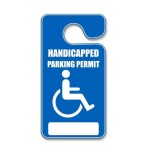 Sometimes there are many issues within one issue. One example concerns parking for the handicapped. I am sure many readers have seen flagrant violations and agree that they should be stopped.
Sometimes there are many issues within one issue. One example concerns parking for the handicapped. I am sure many readers have seen flagrant violations and agree that they should be stopped.
- In a former blog, I mentioned how my mom and I had to drive around and round at Tourmaline Surf Park and finally were forced to leave because we could not find a place to park while people without placards took up the only accessible spots available. Some of these people think that if the car is still running, they are not parked. I want to assure them that they are parked in a space that a handicapped person cannot use at that moment. Why should someone in a walker or wheelchair be forced to leave the parking lot just because someone who can walk thinks they have the right to park there instead?
- My aunt has a severe heart and breathing problem. Though she can walk, she really should not go far and must drag her breathing apparatus with her. I think people would not question her parking in a handicapped spot. Plus, she has a legal handicap placard.
- A few weeks ago, my step-dad came home from surfing. He was really mad and finally told us about the two young ladies he saw pulling into handicapped parking. He was rinsing off his surfboard and watched while one of the women put up a handicap placard. She glanced up and made eye contact with him, and he saw an unmistakable look of guilt on her face. So he kept watching. The two women got out and bounded away without any limps or hint of disability. He said he was tempted to put a note on the window that said, “My daughter can’t walk; which one of you cannot walk?” He did not do that just in case if he was wrong. There might have been a hidden disability with one of the women, but he didn’t think so. People who are not handicapped should not use the placards of relatives or friends to take up much-needed parking which only disabled people are entitled to use. These people can cause great hardship and distress to helpless people who already have their share of problems.
- There are not enough parking spaces allocated for handicapped people in many places. For instance, at the North Clairemont Public Library, there is only one space, and I usually can’t get it. There are a lot of parking spaces at Target; however, frequently there are none available. There needs to be more handicapped parking for the disabled people, and other individuals should not abuse the use of placards and spaces. Some disabled people really cannot park anywhere else because they need the extra space to pull down their ramps in order to get themselves and their power chairs out of the vehicles. I have several friends and family members who have experienced this injustice.
- The saddest and most outrageous crime is the theft of a handicap placard. I have a good friend who recently told me that someone stole his placard. It took a long time for him to apply for and receive a replacement. In the meantime, it was much more than an inconvenience for him to go places. Some people are just selfish, through and through! Who would do that—steal a placard from someone who is paralyzed?
- Finally, there is one more issue regarding accessibility in the parking areas for handicapped people. It is the accessible curbing that is frequently not constructed properly to code, or if it is to code, the code is not written by anyone who is handicapped or by anyone who even knows about handicapped people. Sometimes I can’t even get up the accessible curbing because it is raised and not flat like it needs to be. My wheelchair simply will not go over it, and I have almost been thrown out of the chair as the person pushing my chair rams into the raised curb that is supposed to be flat. It’s worse in my walker.
One again, I ask my readers to observe and comment about these issues, and especially to write to any authorities who can help get these problems resolved. Please write your local and state representatives and also any committee members who serve in Congress. Below are links and addresses to San Diego representatives and my local councilman. Please do not hesitate to write to them or to your own local and state representatives.
Thank you all for your assistance. We need it so badly if anything is ever to improve. Sometimes we feel forgotten amongst all of the money-making hype. I belong to an organization called “People First.” I am just beginning to understand the meaning of that title.
Chris Cate
Council District #6
City Administration Bldg.
202 C. Street, 10th Floor
San Diego, CA 92101
(619) 236-6616
ChrisCate@sandiego.gov
Senator Marty Block
District #39
Capitol Office State Building
Room 4072
Sacramento, CA 95814
(619) 645-3133
(916) 6514039
sd39.senate.ca.gov
(His website slogan is “How can I help you. . .)
Assembly Member Toni G. Atkins
State Capitol
P.O. Box 94289
Sacramento, CA 94249-0078
(916) 319-2078
(619) 645-3090
asmdc.org/speaker
Click on “email Toni” from the official site.
IMPORTANT NOTES FROM THE AUTHOR
#1. A couple of readers have asked me why my writing is negative? For this question, I advise the readers to consider the title of my blog: Issues of the Disabled, the target word being “issues.” I am not writing about puppies and kittens and cute things here. The word “issues” exactly means serious matters that require change or reform. These matters decide the quality of lives. These are critical issues. If I want to write about happy, cute things, I promise I will be positive. To this point, I am actually being positive because if I wanted to show the extent of my passion concerning these issues, my voice would also contain some anger for certain injustices disclosed.
#2. Another important misinterpretation to clarify: Certain people have inferred that I am not the author of this blog. Most published authors have editors. I have a disability in the area of writing (among other disabilities.) I have dysgraphia which is a broad term for processing problems with writing. No matter how hard I try as of this date, I will leave out words, write words out of order, misspell words, and assume that the reader can read my mind. Believe me. You do not want to read my text without the benefit of my editor! It is absolutely convoluted! However, make no mistake: the writing published here is mine. The voice is mine. The ideas are mine. And for you who are skeptics: GOT IT?
Please write back if you agree or disagree. Thank you for your thoughtful comments. Please get your family and friends to follow as well, especially young people my age who seem to be too busy to get to know a handicapped person.
Blog #9: PITFALLS AND POTHOLES

June 14, 2015
PITFALLS AND POTHOLES
Safety is a primary issue for handicapped people. Following is a story I want to share involving safety:
I go to the San Diego Public Library, North Clairemont Branch, twice a week for tutoring in reading and math. My mom or a care provider takes me. We have trouble getting into the library because there is a HUGE pothole in the middle of the accessible walkway.
Also, there is only one accessible parking space, so on most days we must park at the end of the parking lot. The problem is that the entire parking lot is filled with HUGE potholes. To my mom and me, and as my mom describes it, walking through this parking lot of potholes in my walker is like walking in a mine field. To make it even worse, one of the biggest potholes is right smack in the middle of the accessible walkway. It is difficult for me to miss that pothole due to my visual motor issues. By the time we get to the library door, we are usually trembling and exhausted and late for tutoring.
We told the library staff on the first day we experienced this problem, and they let us know that they were well aware of the issue and that they had already called the City on many occasions. It seems to be a standing joke among the library staff. They said that the City does not come out to address the complaints, and that when they did come out in the past, they fixed one pothole by building a mound, so that now instead of a hole in that place, there is a great big hump, which is just another hazard.
The staff told us that two people have fallen there, and still the City does nothing about this hazardous problem.
The library is not the only place where this happens, but this location is among the worst I have seen. It is the responsibility of all people to care about, report, and follow through on this problem that affects the safety of everyone—especially, the elderly and disabled people.
Please let administrators of hazardous sites know of these problems, and please write your local representatives to enlist their help in getting these hazardous areas corrected.
The person ultimately in charge of the area for the North Branch of the San Diego Public Library is Chris Cate, and his contact information is as follows:
Chris Cate
Council District 6
City Administration Building
202 C Street, 10th Floor
San Diego, CA 92101
(619) 236-6616
ChrisCate@sandiego.gov
Thank you all for your continued concern and efforts to improve the lives of disabled people.
BLOG #8: UNEXPECTED DISCOVERIES
I have always looked forward to making new friends. As a handicapped person, making friends who I can actually converse with is a difficult process since many of my friends have severe disabilities affecting speech and language, and attempts to keep friendships with non-handicapped friends has been frustrating. I have two handicapped friends who are able to converse with me at my level; however, after seeing what these two close friends have been going through over the past several years, I am now almost afraid to meet new people, and my trust and gratitude for the agencies which I have believed are there to help me throughout life has been greatly challenged. I have changed the names of these friends in order to tell their stories so that people will be aware of the difficulties facing handicapped people, and in particular, so that they will be aware of the difficulties that handicapped people face in spite of the social services agencies created to assist and protect the disabled.
I met Sarah about five years ago in a day program. We hit it off right away because we could talk together, and it seems that we had a lot in common. During the time that I have known her, Sarah has lived in approximately five different group homes. She now lives in a nursing home. Sarah had some problems in the first two group homes at the beginning of our friendship. In one home, she had a roommate who stole things from her. As a result of this continued issue, Sarah requested to move from this home. Her agency worker then had to find her a new home and take care of paperwork in order for this to happen. At the next group home, Sarah was well cared for, but she was the only young person there. There was no one at her skill level to talk to or do things with. Also, she felt that the owner of the group home was too strict and did not want her to go out to visit friends, or she was required to come home too early in Sarah’s opinion. After awhile, Sarah requested to leave this home. Had she known how relatively minor these problems were compared to what she would face in the future, Sarah never would have left the second home.
When we saw Sarah while a young man whom we shall call Bryan was taking care of her, her hair was shiny and well kept. She weighed 103 pounds. She was working toward a GED with the facilitator of her Tailor Day Program, and she regularly attended wheelchair dance classes where she had many friends. She attended church often and actively worked in an organization for disabled people.
Shortly after she left the home where Bryan worked for reasons stated above, we saw a different Sarah. Her hair was dirty and unkempt. Sadly, she was wearing diapers because the owner of the new group home did not want to take her to the bathroom. The usually urine soaked diapers were clearly visible through her clothing. By accident the rods in Sarah’s back were broken due to mishandling. These rods, which many physically handicapped people have, provide the disabled person with the ability to sit up better, and allow for better ability to breathe and digest food, among other benefits. The broken rods poke Sarah in the back, causing much pain. An orthopedic surgeon scheduled surgery to repair the rods. Suddenly, blood clots were discovered in a leg after Sarah complained of pain in her leg. She had to take blood thinners; consequently, the surgery needed to be postponed. After the blood clots went away, surgery was again scheduled. The blood clot returned. Surgery was postponed again.
During the time that Sarah lived in this group home, we received many anguished calls from her when she would cry in pain, stating that the owner of the group home would not take her to the doctor for issues such as urinary tract infections, nor would she fill the prescriptions in a timely manner. When Sarah was hungry, she was given crackers to eat in bed while she lay in a reclining position, which allowed crumbs to enter her windpipe. She began coughing up blood and had to go to the emergency room. On some of these occasions, the owner of the group home would not take her to the emergency room.
Whenever we visited Sarah at this home, we brought her gifts and money to make her life easier. We brought her lots of DVDs to borrow. We also gave her a TV because she usually just lay in bed all day with nothing to do. In this home, there were no group activities, and the family television was not shared with the clients. Frequently and suspiciously, the money we gave Sarah disappeared. She communicated to us how helpless she felt to protect her belongings or to help herself with getting to appointments. MTS cancelled her eligibility after she missed three pick-ups because the owner of the home did not get her ready in time for appointments.
As this manner of neglect and possible abuse continued at this home, Sarah began begging her agency worker to find her a new group home, but the worker, possibly annoyed due to the number of moves requested by Sarah, stated that there were no homes available. Sarah was kept at this home for years while regularly reporting incidents of neglect. My mom called several times to discuss this issue with Sarah’s case worker, but the worker blocked my mom from communications, citing the Hippa law as an excuse to escape advocacy for Sarah. She did tell my mom that Sarah has “behavior” problems, so I guess that trying to help oneself is inappropriate behavior.
At one point, Sarah was placed in a sort of foster home with a couple who did not seem to know how to take care of a severely physically disabled person. We heard the man yelling at Sarah to hang up the phone when she was speaking to us, and the woman of the home actually asked my mom to take care of Sarah on weekends so that they could go sailing. My mom worked 60-hour weeks at the time and had a full time job taking care of me, so she said that she would take Sarah on some Saturdays or Sundays but that she could not do it every weekend. The lady was mad that my mother would not help her more so that she could go sailing. After awhile, the couple decided that this was not the life for them, and Sarah was removed from that home, but incredibly, the case worker placed her back with the neglectful group home described above. We could not believe it! After all of the requests to leave that home and with good reasons stated, that case worker put her back in harm’s way!
Sarah finally left this group home, but not due to any diligent efforts of the agency worker. She left in an ambulance, which she had to call for herself due to an incident of coughing up blood. The paramedics found her on the floor. According to a report filed by the paramedics, the owner of the group home actually tried to send them away, but luckily, the paramedics insisted that they did receive a call from that home, and they persisted in finding Sarah.
She never had to go back to this group home, and after being discharged from the hospital, Sarah was “temporarily” placed in a nursing home until her health improved. There were blood clots to clear, the coughing up blood incidents to prevent, and she needed to lose the weight that she had gained while living in that home. However, they must have lost the key because Sarah is still in this nursing home almost three years later. Co-residents of this nursing home are all elderly and extremely ill, or experiencing dementia. So far, at least two of her roommates have died. This is not an age-appropriate facility for Sarah to live in for such a long time. While living there, Sarah developed a huge sore on her hip, which would not heal for a very long time. Because of this sore, she could no longer go out in the community. While health goals for Sarah state that she is to be encouraged to make healthy choices for eating, Sarah has continued to gain more weight and now weighs over 160 pounds. She is a short person, and this is an incredible amount for her to weigh when she was only 103 pounds a short time ago. When we went to visit her last, there were bags of bagels and cookies, and boxes of crackers within arm’s reach of Sarah. Six packs of soda lined the wall of her room, and while we were there, an attendant came in to bring a snack for Sarah, which was a bag of graham crackers. It is not difficult to figure out how Sarah continues to gain weight on this healthy eating program at this nursing home.
Sarah has been trying to get back her belongings which were left at the previous group home when she was whisked away to safety by the paramedics. She has called the home many times, and the woman tells Sarah that she has no right to call there any more. A friend went to the home and brought back a box of Sarah’s belongings, but things were missing, some of them pieces of jewelry that we bought for Sarah, her phone card, and a camera which her sister had bought for her. The woman continued to say that there was nothing left of Sarah’s at this home. My mom wrote a letter demanding the return of Sarah’s possessions and copied an attorney. Amazingly, another box or bag of belongings showed up at the nursing home. Still, important items are missing, such as the camera, her computer, part of her jewelry box, and the television, which the lady denies having in the home. I wonder if the TV got up and walked out of the house by itself.
So, I have questions. Who is coordinating Sarah’s care? Or rather, who is not coordinating her care? After all of this time, the much-needed back surgery has not happened, and it appears (as my mom discovered at a recent meeting at the nursing home) that it is not going to happen because no one at the nursing home is even aware that the surgery was ever scheduled—even though Sarah asks about this surgery frequently, and my mom has spoken with a social worker at the nursing home about it and also with Sarah’s previous agency case worker. How can it be that at the recent meeting when my mom inquired about the back surgery, no one knew that she needed one or that one was ever scheduled? Sarah is given pain medication for her back pain, but nothing will be done to repair the rods in her back, which are the cause of the pain. The doctor there has done nothing much for Sarah’s benefit. However, a nurse there did tell my mom that Sarah has osteoporosis, but could not tell my mom if she was receiving medications or treatment for this condition, which she is much too young to have. Such care she is receiving at this “care” facility!
I met the friend who we will call Mark at another adult day program. Neither of us stayed at that program due to many, many more problems, which is an entirely different article altogether. Mark can walk and speak well. I thought I had found someone to hang with, but within a very short time, he told me that he needed to move out of his group home because the owner there yelled at him, poked him in the chest while yelling, and pounded on his bedroom door in the middle of the night. I actually heard the pounding, cursing, and yelling one time over the phone. Like Sarah, Mark’s agency worker could not, or would not, find him a new home. When Mark complained to the worker’s supervisor, the supervisor informed him that his case worker deliberately set his issues aside because Mark called her too often. So, it is ok to ignore the plight of a client if they annoy the worker? How ethical and diligent of that worker—and of the supervisor who knows about the issue!
During his young life, Mark has been the victim of prenatal drug abuse by his mother. He grew up in the foster care system where he was once chained to his bed for his misbehavior and witnessed his foster sister beaten. When one of his foster parents got a divorce, he tried to follow the foster father to his new home, but the man said that he had no room for Mark at his new place. Mark was suddenly alone and thrust into a homeless situation. It seems like his entire life has been a series of stressful situations. All he has ever wanted is a family.
With the help of my family and a wonderful former elementary school teacher, Mark was able to get out of the recent group home with the yelling, cursing owner. Mark now lives with the teacher and her family until the agency worker finds him a new place. Who knows how long that will be? Like Sarah, with our help, Mark had to rescue his belongings from the group home after he left. He was being transported to a homeless facility when his former teacher saved him and brought him to her home. Why are the non-professionals responsible for doing the work of the professionals? Mark is not safe from stress yet. Now it appears that he is being punished for advocating for himself. Someone seems to be informing possible group home owners about Mark, casting negative impressions about him. As his former teacher says, “it must be written in The Tribune . . . . “ But isn’t spreading gossip and rumors about clients a breach of ethics for both the owners of group homes and social workers? They are not supposed to disclose information or make up information.
More questions:
Who is running these homes?
Are they caring, trained people, or are they doing it just for the money?
Are the funding agencies so over-worked that they must leave their handicapped clients in harm’s way for long periods of time?
Who supervises the funding agencies?
Who supervises the case workers?
Who supervises the supervisors when they look away from negligent or incompetent service?
How do disabled people find the right place to live where they will be cared for?
I understand that handicapped people are not always easy to work with and care for. They can be annoying. They may call too often for assistance. They may want to move frequently since group homes will have issues, and after all, everyone wants to be treated well, and everyone wants to be happy. Doesn’t the Constitution guarantee all citizens the right to pursuit of happiness? We are people who need and have a right to ask for help because the State of California provides money for the purpose of helping us—the handicapped people. Without us, social service agencies and workers would have no jobs.
Should the disabled person stay in a bad situation and not ask for help? Of course not!
Sarah and Mark have dreams, just like every one else. Sarah still wants to finish school. Mark wants to go to college. Sarah has dreams of falling in love and having a relationship. Mark wants a family. Both Sarah and Mark wish that my mother were their mother.
I have dreams too. When my parents are no longer able to care for me, I want to live in a nice home where I will be cared for and where I can thrive, where I can grow socially and intellectually, maintaining good health—where I can have fun. I dream that friends and family members will come by my house and pick me up to go hang out.
As I see the stressful and scary situations of my friends who have no parents who help them, I am grateful for my family and hope I will never be in the situations of Mark and Sarah.
If all goes well, hopefully, I will not have to live in a group home. I will try to go with one of the agencies that help people to get their own place and hire and manage their own care providers.
If it were not for social services and the money provided for handicapped people, many disabled adults would be homeless. This is a positive thing for us. However, more monitoring and supervising is needed for these group homes, adult day programs, and nursing homes.
I wonder what my future holds. I hope someone will listen if one day I ask for help.
BLOG #7: IF AT FIRST YOU DON’T SUCCEED. . . .
I have a story for you. I joined an adult day program, which I was in only for a week. Toward the end of that week, one day I met a new job coach. On Friday of that week, our group went bowling. It was fun going bowling, but I was getting thirsty so after bowling, I asked the coach if I could go into Starbucks. She said I could go to Starbucks and asked if I minded if she went to Vons while I and the other two clients went to Starbucks. and I said sure, but I didn’t know that according to program policy, and I believe according to the law, that we were not to be left alone or unsupervised since we were in the care of that person. I did not know this point of the law, but a good friend of mine told me that later, and so did my mother.
There were three of us, so another client and I bought our drinks at Starbucks. Then we had to cross this busy street to go back to Vons to meet the job coach. It was both a street and a parking lot as cars were backing out, but also driving on streets. One of the clients was drinking his coffee in the middle of the street. He was oblivious to the traffic. We (another client and I) told him to keep walking. He kept drinking anyway. Then I said, “ Come here! Give me your drink!” He said, “What?” So, I firmly repeated for him to give me his drink again. Then he finally walked across the busy street.
When we finally met up with the coach, I told her that what happened.
It was a funny story as my other client friend and I told it to my parents one night at dinner. But I knew as soon as we started across that busy street in my rickity walker that it was actually a dangerous situation. Handicapped clients should never be left alone without a coach if they are not entirely capable of crossing busy streets safely.
This is my story, which contains a lesson to be learned for people with disabilities or for any child.
A few days later we invited my new friend from the program (not the one who was misbehaving) over for dinner. We told my mom the story. We also talked to the director of the program who asked the job coach if this was true. She lied and said that our story wasn’t true. I think she should have been fired because she broke a rule of the adult program, but also, by denying what we said, she was basically calling my friend and I liars. We had no reason to make up this story, which we innocently told to my parents, not knowing that my mom would probably do something about it. We did not lie, and that job coach did not do her job, and she actually endangered us by leaving us alone while she did a personal errand at Vons on work time.
That job coach is still employed at that adult day program, and my friend and I no longer attend that program. He is finding his own jobs, and my mom and I are taking our time looking for a better program with integrity.
POST #6: LIKE STEALING CANDY FROM A BABY
Most people would not envy the life of a handicapped person. Our lives are not glamorous. We use awkward equipment, such as walkers and wheelchairs, just to get around–no spike heels for this girl. Some people need a lift called a hoyer to get out of bed or to use the bathroom. Many of us will never go on a real date or have children or grandchildren. Many will not travel since much of the world has no accessibility for the disabled.
Although most people would not trade their lives for that of a handicapped person, amazingly, some people do not mind taking advantage of the nice services provided by the Americans with Disabilities Act (ADA) or those ideas created by generous people or agencies for the benefit of the disabled in order to make our lives a little better. For instance, on more than one occasion, my mom and I have gone somewhere such as the beach at sunset time when we were unable to park in a handicapped spot because those spots reserved for handicapped people were full of cars occupied by people who did not appear to have placards. We actually had to leave on one occasion after driving around and around the parking lot because no spot became available, and thoughtless people were taking up the spots reserved for people like me–a handicapped person who has difficulty walking. These trespassers, intruders, or whatever, thought that because their engines were running, and they were still in their cars, that they were not breaking the law. But because of them, the more entitled ones, I, the actual handicapped person, had to leave the parking lot without seeing the sunset.
Another example of misuse of services for the handicapped is at amusement parks. Now the lines for handicapped accessibility are longer than the general lines at Disneyland and other places, and I hear that they are getting rid of the handicap entrance because of misuse of the service intended to help people who cannot stand or who cannot hop on to a ride without the car stopping. At Sea World many of the areas set aside for wheelchairs are taken up by families with babies in strollers. I have also seen someone get up and walk away from his wheelchair–true fact! I saw it happen at the Colors of the Wind show at Disneyland. No one should do this! I was practically trampled as entire families ran in front of me to get to the few benches set aside for the handicapped at that program. One person was approximately a 30-year old able-bodied man who took my seat.
I have always wanted a service dog, but I am patiently waiting until things are ready with my family so that we can take care of one. Having a dog is a lot of responsibility, and training a service dog is a huge commitment. I have pages of pros and cons carefully recorded as I try to do the right thing about getting a service dog. It bothers me to know that many people buy the service dog vests and badges so that they can take their pets with them wherever they go. You can easily buy them online. But there is a difference between a dog who is a pet and an appropriately trained service dog meant for someone who has applied and qualified to receive one. Properly trained dogs do not bark in frequently see untrained dogs wearing service dog vests. It is not fair. It is not right!
Finally, a situation which I recently noticed but which I consider to be almost a scam is the growing abuse of concert ticket resales. I have waited for years to see Taylor Swift, but when we went online recently to buy tickets, we found out that tickets sold out in ten minutes while resale websites scooped up countless tickets in order to double and triple the prices with one catch: no tickets were earmarked as handicapped accessible. We spent hours combing every resale website. Am I going to be able to go to this concert? Do any of these people care?
Disabled people know that a lot of this world is inaccessible to them, but why do those people who have the good fortune to be able to walk and hop over railings need to take away the few things given to the handicapped. It’s easy as pie–like taking candy from a baby.
BLOG #5: PRAYERS AND DREAMS
Everyone!
I am handicapped. Many of my friends are handicapped. I have met many wonderful people during my 25 years. I have met wonderfully-hearted people like teachers, aides, assistants, and people who smile when passing by, and I just know that they are good people.
But then, I noticed those individuals who blatantly stare at us, the handicapped, because we are different. Worse yet, are parents who allow their children to stare at us without even telling their children that it is impolite to stare at people. My mom taught me that basic manner; her mom taught it to her. One mother at a store criticized her daughter for asking me why I am in a wheelchair. I wanted the woman to know, and I told her, that the question was fine–not a problem. I would much rather explain what happened than be the subject of a rude, cold stare. I have a lot to learn yet in my life due to cerebral palsy, but many supposed “normal” people have much to learn about human decency.
I accept that I am handicapped, but I am not protected from the judgments of ignorant people who think they are better. Even among the handicapped there are categories of higher and lower, just like any other population. I find that I must be patient with my own friends, such as those who cannot speak. I feel so badly when they cannot answer me verbally or in a text, and I want to simply converse with them, but sadly, they cannot tell me what they mean. I want to say to then, “Please get a Dina-box,” but then I realize that some of my friends do not even have the use of their hands with which to type. We must all be patient and compassionate. We all have a lot to learn–handicapped or not. There are more ways to be handicapped than the obvious physical and mental impairments which qualify a a person for special programs.
We, the handicapped, often wish we were not–handicapped. Sometimes we want to just be able to do things like others without having to wait for help, such as someone to dress us and then drive us to where we want to go. I wish I could write my own blog without the help of my mom who is often busy with her own things. I do try, but even Dragon Dictate doesn’t always work. It is not always funny to read what I think I dictated. I wish I could go out and catch a bus to meet with friends, but I know I am not ready yet since safety comes first. I know I must be patient.
My biggest dream is that my friends and family will call me up and say, “Let’s hang out today–” that they would scoop me up and take me out for a fun event. I want to be included. The handicapped want to be included. It’s hard to always wait.
Hopes and dreams–all people have them.
BLOG #4: MAKING THE BEST OF IT
My family decided to use our timeshare and go for a short ski trip while my step-sister was home for one week. We picked my step-sister Mindy up at the airport on Friday. She got in late. She ate leftover soup for dinner. We had two kinds of soup, but Mindy really liked the acorn squash soup. We ate soup for breakfast again the next morning. Mindy finished the acorn soup. I love having Mindy home.
On Saturday we hung around a lot and planned our ski trip to Big Bear. My step-dad Jeffie surfed in the morning.
Sunday morning was frantic as Mom tried to give me a shower and pack all of the stuff that she should have packed yesterday. She kept asking over and over why she didn’t do it yesterday. It was raining, and we had to drive up that mountain.
There was no need to worry because the ride was safe. There were sudden clearings in the sky, which made the canyons look mystical. The clouds were like angel hair. We saw a huge double rainbow.
Our timeshare condo was great! Mindy went snowboarding the first day while we hung out. Mom really wanted to ski but was afraid after so many years had gone by. We talked and talked about it.
The next day took forever for us to get ready. Mindy had ridden up the chair lift with an instructor from the adapted ski school. He said that I should go skiing too. We couldn’t decide if my mom and I should go skiing.
It was 1:00 pm–past half-day time of skiing when we knew it was decision time. My mom said, “O.k., Mindy. Let’s go.” They rented skis and bought tickets, and she had a great day!
Jeff and I went to the ski school to see about lessons for me, but it turns out that a tour bus of handicapped people arrived that day, and they were all booked up.
So, how do I feel about that outcome? Actually, it was o.k. I was excited about the prospect of skiing, but I knew not to count on it. I had a great time just being at the ski lodge, drinking hot chocolate and watching Mindy snowboard and Mom ski. I took a video of them. And I learned a lesson: If I want to do something like take an adapted ski lesson, I should make a reservation in advance.
So, if life hands you lemons, make some lemonade, or go have some hot chocolate.
POST #2: ABOUT FRIENDSHIP
Most people have problems with friendships at one time or another throughout their lives. Friends (and family) can be inseparable, integral in our lives. Their drama can cause conflict and anxiety in our lives as well.
I’ve always been thankful for the friends and family in my life, but the conflict and drama and loneliness often claim the day. My family and friends love me, but those of my age group seem to have decided that my place is to sit next to my parents and their middle-aged friends for all of my life rather than to experience situations of entertainment and socializing of age-appropriate young adults. I am not sure if my friends and family peers are afraid to take the responsibility of taking me out to places, or if (and I hope not) they just don’t want to be bothered because I am handicapped, but nonetheless, I need to experience all of the fun things and hanging-out times, which young people do and which cause growth and change in life. Maybe hanging out with a handicapped person isn’t so cool, but we do have the same feelings and needs for friendship and fun as everyone else. I always see programs on TV where the handicapped person is included with the teenage and young adult outings, but this has not been the case for me–ever. No one except for people my parents’ age will take a chance to come and get me and include me in their fun plans. It’s lonely.
POST #1: INTRODUCTION
I am CP Girl though that is obviously not my real name. I was born two-and-a half months premature and suffered brain damage as a result of that complication. My twin sister died, and that was the beginning of my issues of dealing with Cerebral Palsy and dealing with the world as it relates to CP. Welcome to Blog No. 1. Feel free to comment on anything that I write. I welcome the input as long as it is kindly stated, and I am happy to provide any advice that I have regarding any issues you may have as well.
I am so sad that my sister died. I wonder what life would have been like with her in this world.
Hello world!
Dear CP Girl Blog Readers:
I am pleased to introduce this new blog which will supplement my former blog addresses: myprettymuchnormalday.blog.com and disabledpersonsstory.blog.com. These sites were frequently disabled or under construction, making it difficult for readers to access my articles and stories. The previous addresses are still working and available, as well as this blog address. Please keep reading, commenting, and sharing the issues regarding disabled people. We need lawmakers and advocates to become aware of the need for urgent and necessary changes in the laws to protect handicapped or disabled people.
more want to for inomation, please look at if you have a tiktok. com here is my cpgirl89






























